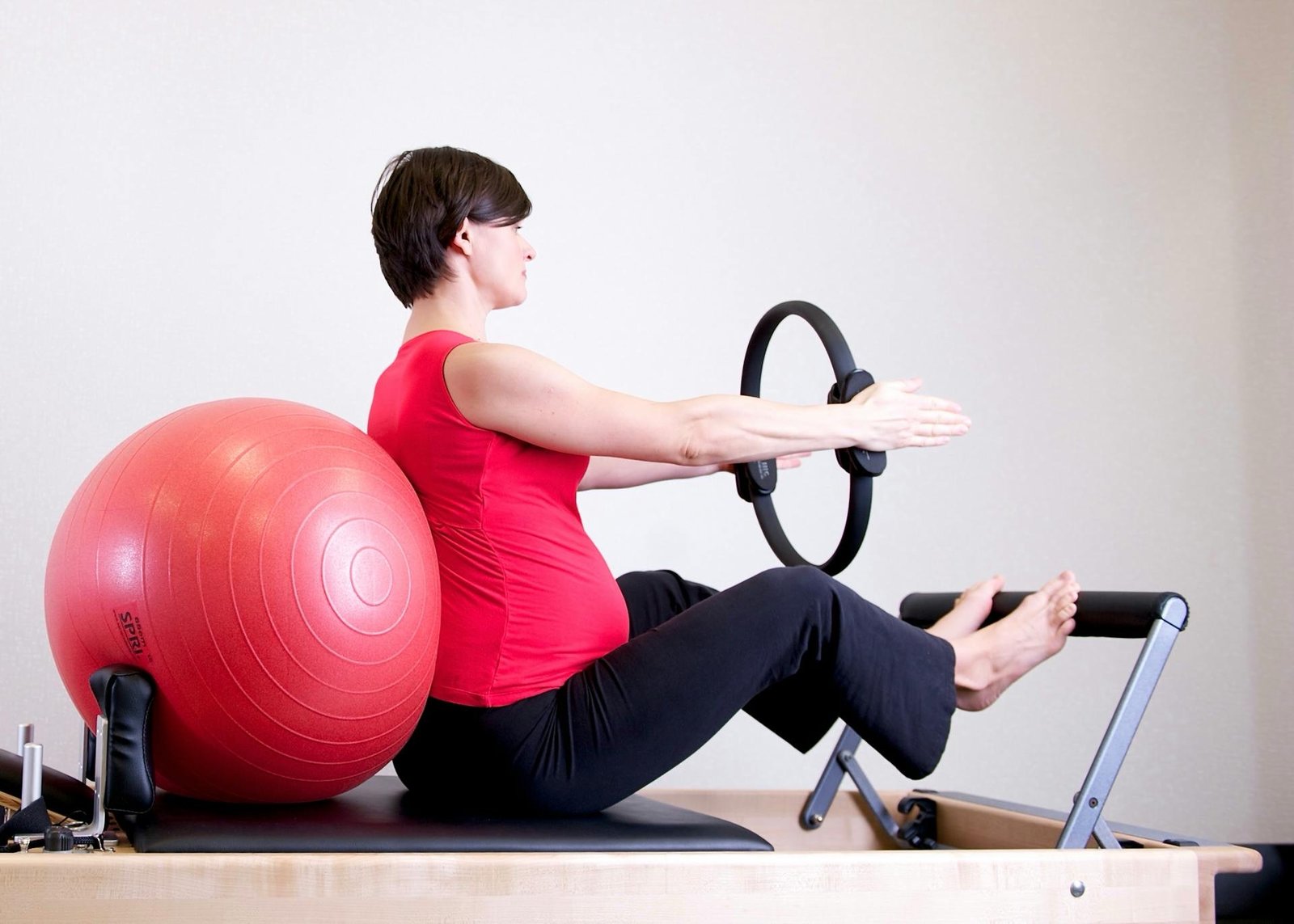Benefits of Practicing Pilates During Pregnancy
It is first and foremost most important that you consult your doctor and follow their advice. Pregnancies are a personal experience and not every woman will be the same; however, generally speaking, Pilates is adaptable enough to be very safe during pregnancy. Practicing Pilates during pregnancy offers numerous benefits that contribute to both physical and mental well-being. One of the primary advantages is that it helps maintain physical fitness. The controlled, low-impact exercises of Pilates are ideal for expectant mothers, allowing them to stay active without putting undue stress on their bodies. This is crucial for maintaining overall health and preparing the body for the demands of childbirth.
An additional benefit of Pilates is its positive impact on posture. As pregnancy progresses, the body undergoes significant changes that can affect alignment and posture, often leading to discomfort and pain. Pilates exercises are designed to strengthen the core muscles, which support the spine and help maintain proper posture, thereby alleviating common pregnancy-related discomforts such as back pain.
Moreover, Pilates is particularly effective in strengthening the pelvic floor muscles. These muscles play a critical role during childbirth and the recovery period. A strong pelvic floor can facilitate a smoother delivery and reduce the risk of postpartum complications such as incontinence. By incorporating specific Pilates exercises that target the pelvic floor, expectant mothers can enhance their physical readiness for childbirth.
The benefits of Pilates during pregnancy extend beyond physical health. Engaging in mindful movement practices like Pilates can significantly enhance mental well-being and provide stress relief. Pregnancy can be a time of heightened emotional stress and anxiety. The focus on controlled breathing and mindful movement in Pilates can help mitigate these feelings, promoting a sense of calm and mental clarity.
When it comes to practicing Pilates during pregnancy, safety and proper modifications are of utmost importance. Before starting or continuing any exercise regimen, it is crucial to consult with your healthcare provider. They can evaluate your individual health status and provide personalized advice, ensuring that you and your baby remain safe throughout your pregnancy journey.
As your body undergoes various changes during pregnancy, adjustments to your Pilates routine are essential. During the first trimester, you can generally continue with your usual Pilates exercises but should start paying close attention to your body’s signals. From the second trimester onward, it is advisable to avoid exercises that involve lying flat on your back, as this position can restrict blood flow and cause dizziness. Instead, focus on side-lying positions, seated exercises, and those performed on all fours.
Low-impact movements become increasingly important as your pregnancy progresses. Incorporate gentle stretching and controlled, fluid movements rather than high-intensity or high-impact exercises. This approach helps to maintain your fitness while minimizing the risk of injury. Additionally, prioritize exercises that strengthen the pelvic floor, core, and back muscles, as these areas endure significant strain during pregnancy and childbirth.
Listening to your body is paramount. If you experience any discomfort, dizziness, or shortness of breath, stop immediately and consult your healthcare provider. Staying hydrated is equally important; always keep a bottle of water nearby and take frequent sips to maintain optimal hydration levels. Avoiding overexertion is critical—your goal should be to maintain fitness, not to achieve peak performance.
Engaging with a certified prenatal Pilates instructor can be highly beneficial. These professionals are trained to tailor Pilates exercises to the specific needs of pregnant women, ensuring that each movement is performed safely and effectively. They can provide invaluable guidance, helping you navigate the complexities of exercising during pregnancy while reaping the numerous benefits that Pilates offers.
In summary, continuing Pilates during pregnancy offers a multitude of benefits, including maintaining physical fitness, improving posture, alleviating discomfort, strengthening pelvic floor muscles, and supporting mental well-being. These benefits collectively contribute to a healthier and more comfortable pregnancy experience, preparing expectant mothers for the journey ahead.

